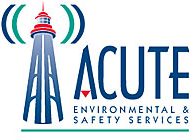Today we are going to give you the top 5 Agribusiness Safety Tips.
ACUTE has over 100 years of combined experience with in-house or on-site worker environmental and safety training. We want to help you keep your workers safe.
We’ll explain in detail how you can keep your workers safe in an agribusiness setting. So let’s get going.

Follow these helpful agribusiness safety tips to keep you and your workers safe
Top 5 Agribusiness Safety Tips
1. You Need to Wear the Proper Personal Protective Equipment
Here is a list of various types of Personal Protective Equipment (PPE) that could be required for positions in the agribusiness sector:
- Hard Hat, Apron and Hearing Protection
- Respirator and Dust Mask
- Safety Glasses, Goggles (vented), or Goggles (unvented)
- Gloves (cloth, rubber leather, and nitrate)
- Safety Boots (steel-toed) and Safety Boots (rubber)
- Chainsaw safety equipment
- Chemical Handling Safety Equipment
As an employee, you need to wear all of the equipment that is designated for the specific job-related tasks that you are performing. Your supervisor should also provide you with training on how to properly use and wear this equipment.
Your employer should provide you with all of the personal protective equipment that you need to safely perform your duties except your safety boots. You will be required to provide those. You need to keep you equipment well maintained and you should report any defects to your supervisor as soon as you notice them.
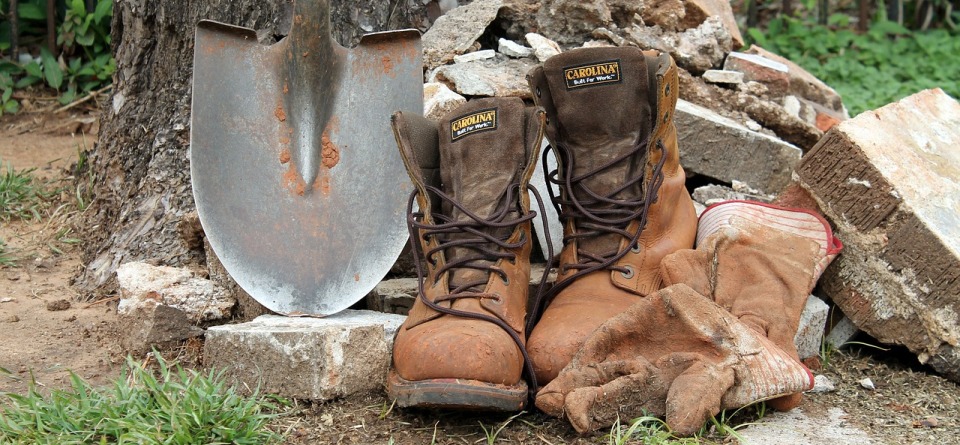
Agribusiness safety tips: You need to get your own safety boots, your employer will provide your other PPE
2. Make Sure You Understand and Follow All Guidelines Pertaining to the Use of Chemicals
Get Proper Training: Only authorized and properly trained employees should be using chemicals. In addition, only licensed or certified operators should apply chemicals.
Wear Personal Protective Equipment: When you are handling chemicals, you must wear the appropriate personal protective equipment. This includes when you are mixing, applying, and disposing of these chemicals.
Properly Store all Chemicals: You must keep all chemicals in their original containers. They need to be stored inside an approved locked room or cabinet and this storage area needs to be marked appropriately. If you have herbicides, they need to be stored in a separate location away from all other types of pesticides so that you don’t have cross-contamination.
Properly Dispose of Chemicals: You need to make sure that you dispose of any unused chemicals according to the directions on the label. In addition, you should check with your local municipality to find out any laws they might have around the disposal of chemicals.
Additional Agribusiness Safety Tips for Chemicals:
- Never smoke or eat while chemicals are being used.
- Follow all the rules of personal hygiene when you are using chemicals.
- Wash the clothing that you have worn while handling chemicals separately from the rest of your laundry.
- Report any chemical spills to your supervisor immediately.

Agribusiness safety tips: Store chemicals in their original containers
3. Follow Agribusiness Safety Tips for Operating Machinery
Get the Proper Training: You should only operate agricultural machinery if you have received the proper training on the machinery and you have been authorized to use it.
Have Operator Manuals Available: You need to have a copy of all of your operator manuals as well as any relevant safety materials kept on file in your main/branch/field office for easy reference.
Check and Maintain Your Equipment: Both before and after you use any equipment, tools, and vehicles, you need to properly check them to make sure that they are in good operating condition and that all of the fluid levels are correct. Make sure that your equipment is regularly maintained and serviced according to its maintenance schedule. Any defects need to be reported to your supervisor immediately.
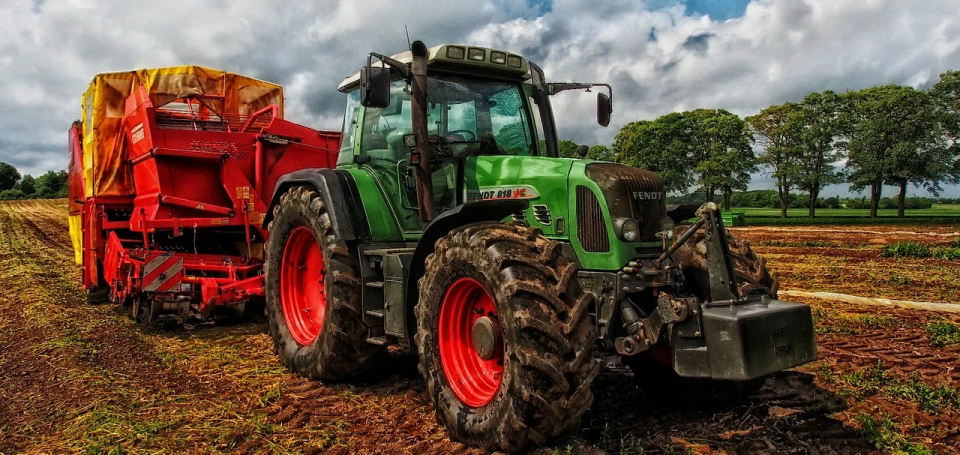
Agribusiness safety tips: Get the proper training before operating equipment
4. Follow Agribusiness Guidelines to Prevent Fire
Handle Fuel Safely: Fuel should be kept in tanks or drums made of steel or another appropriate material and located at least 40 feet away from any buildings or stored underground. The tanks need to be adequately ventilated and grounded.
Enforce No Smoking Rules: Make sure you have no smoking signs posted close to your fuel supplies, pesticides, and other chemicals.
Properly Store Flammable Materials: Make sure you have separate containers to store oily rags, smoking materials, dust flammable scraps, and chemical wastes.
Handle Compressed Gases Carefully: Store any containers of compressed gases in a secure location and in an upright position. Keep them away from any heat sources, stairs, elevators, and exits. Regularly inspect them for dents and corrosion.
Make Sure You Have Adequate Fire Protection Devices: You should have the following in place to help put out any possible fires:
- Fire extinguishers: these need to be in the appropriate locations, the right type, and a sufficient number
- Fire hoses: these need to be properly mounted and visibly marked
- Sprinkler heads: these need to have the proper clearance
- Signage: this needs to tell you what to do in case of fire and should include the number of the fire department
- Fire emergency alarm system: this is optional but is a good idea to have
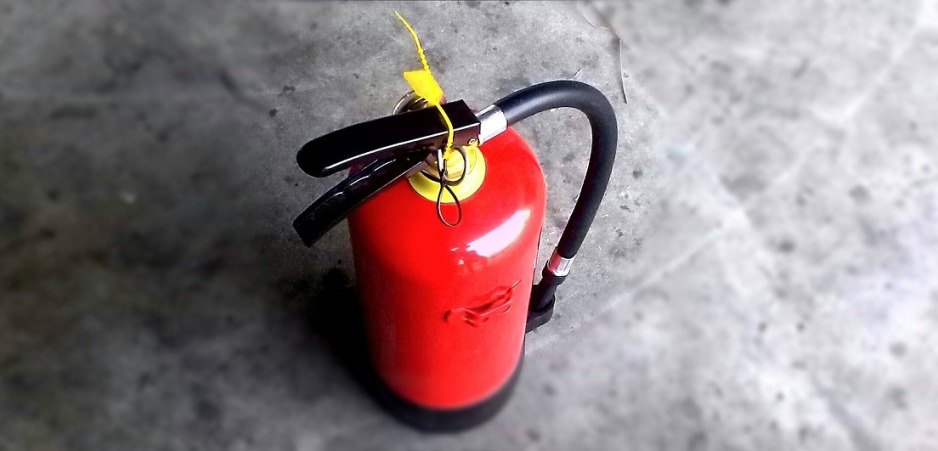
Agribusiness safety tips: Make sure you have enough fire extinguishers available
5. Agribusiness Safety Tips for Buildings and Structures
The following are guidelines to follow to ensure that the buildings and structures of your agribusiness are safe.
Floors and Stairways: Make sure that your floors and stairs are kept clean and orderly without any trip of fall hazards. Your stairs should be uniform in height and tread depth and free from nails or other protrusions. You should also have handrails on at least one side of any staircase.
Structures/Buildings: Any aisles or passage ways need to be kept clear and free of trip hazards. You should have enough exits for a quick escape in an emergency and your exits should have properly illuminated exit signs. You need to keep any flammable items away from any exits.
Storage Areas: You need to have adequate storage space in your facilities and what you store should be safely and securely stacked and stored. Makes sure that your skids are the correct type and in good condition. You should also post load limits and storage heights.
Ventilation: Your buildings need to be adequately ventilated with hoods that draw air away from your workers. These hoods need to be connected to an exhaust system.
Electrical: If you have high voltage and control panels, these need to be closed and secured. You need to have explosion-proof fixtures in areas where there is flammable dust or vapour and your electrical equipment should be protected from coming in contact with fluids.
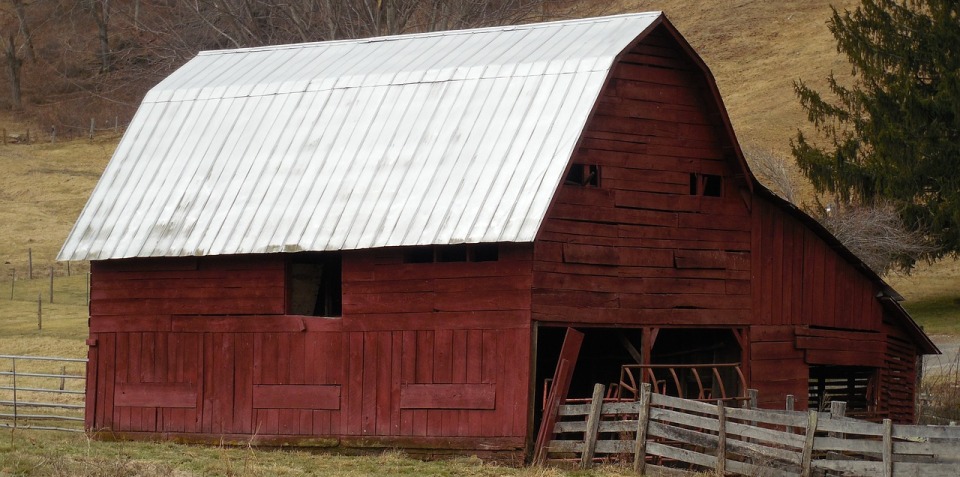
Agribusiness safety tips: Your buildings need to be adequately ventilated
Agribusiness Safety Tips: Need Assistance? ACUTE Can Help
ACUTE’s experienced team members have been serving safety professionals for over 20 years. ACUTE has worked with the Ontario Agri Business Association (OABA) and we can help you get the best training for your agribusiness.
You can trust ACUTE for hands-on, practical training to keep your employees safe in the workplace. ACUTE is dedicated to workplace safety and understands the importance of course and training provider approval. Why get workplace safety training with ACUTE? Here are just some of the benefits of working with ACUTE.
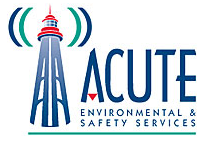
- Open Door Instructor-Student Partnership – ACUTE’s training services emphasize client participation. Staff foster relationships with clients and serve as a touchstone for advice anytime moving forward.
- Serving Your Team and Industry – With a vast array of clients in manufacturing, construction, health, academic, and government sectors, ACUTE brings the best safety practices from across the spectrum to your workplace.
- 100 Years Combined Experience – ACUTE provides comprehensive health and safety training, on-site safety services, and consulting services. With over 100 years of combined experience, our company staff offer more than theoretical or abstract ideas. ACUTE offers solutions.
- Track Record of Success – ACUTE is rated 4.9/5 stars on Google reviews, demonstrating a commitment to our clients, quality, and passion for training.
“We have relied on ACUTE for years to train our staff and keep them safe on the job site.”

For all OABA members, please contact the ACUTE office prior to registration.
